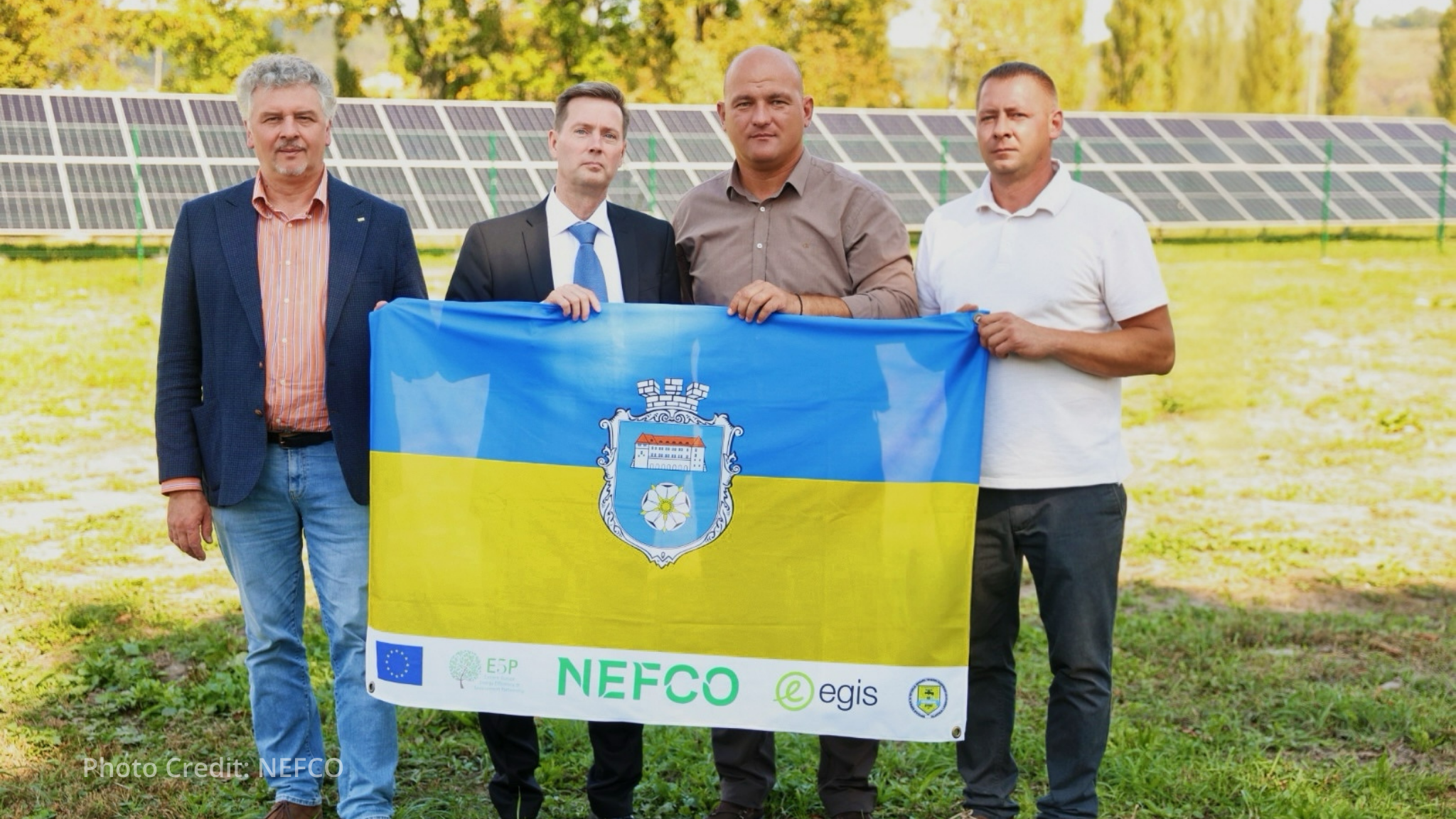Ukraine completed its first solar-powered water treatment project in the western city of Chortkiv, giving residents reliable clean water even when Russian attacks knock out the power grid, according to a Nordic Environment Finance Corporation (NEFCO).
The €460,000 project funded by the Eastern Europe Energy Efficiency Partnership installed solar panels at two water pumping stations and a wastewater treatment plant. Sweden kicked in another €54,960 for technical help, while Chortkiv added €33,846 of its own money. The solar panels now supply 20% of the facilities’ electricity needs and should save the city about €70,000 yearly while cutting CO2 emissions by 300 tonnes. The project opened officially on September 23, 2025, and shows other Ukrainian cities how they can keep basic services running during wartime.
Chortkiv has dealt with over 2,700 internally displaced people since Russia’s full invasion began in February 2022. The extra residents put more pressure on water systems that were already struggling with power outages from attacks on Ukraine’s electrical grid. Russian forces have systematically targeted power infrastructure, leaving many cities scrambling to keep hospitals, schools, and water treatment plants running.
“Chortkiv has demonstrated that implementing projects like this is possible with support from international finance institutions and donors even under the difficult conditions of war,” said Mayor Volodymyr Shmatko. The solar setup includes three photovoltaic plants with 340 kilowatts total capacity and a net billing system that can feed extra electricity back to the national grid. Staff got training on how to operate the new equipment. “With E5P donor support, Chortkiv now has clean energy and reliable water services—a vital step for resilience and sustainability during these critical wartimes,” said Kateryna Stasiuk from the funding partnership.
The project could serve as a template for other Ukrainian municipalities trying to keep essential services running. Solar power works better than diesel generators because it’s quieter, needs less maintenance, and breaks down less often. Viktor Hordiienko from Chortkiv’s water department said the project shows “how a water utility can be transformed into a more sustainable, environmentally friendly and modern facility.”
This marks the first time Ukraine has used solar power as the main energy source for critical municipal infrastructure, though smaller rooftop solar projects have been tried before.

